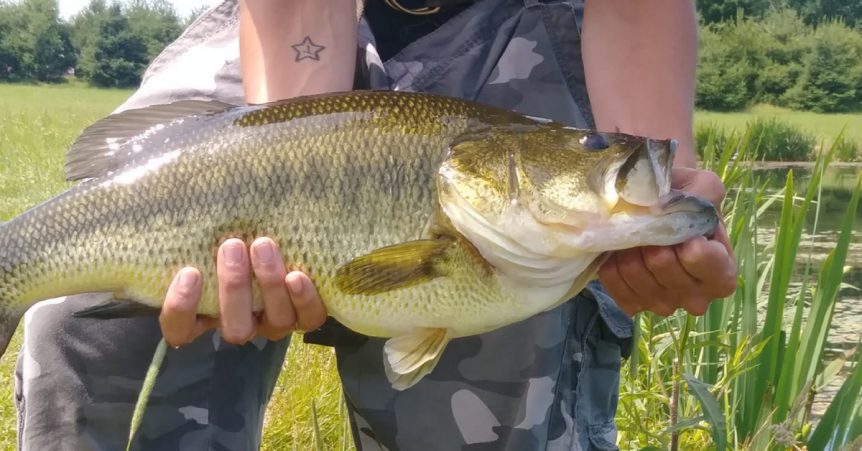When facing a tough fishing conditions, knowing how to fish a french fry bait can help trigger a few extra bites. The look has remained the same over the years, but the “do nothing” reputation of the French fry or Centipede finesse worm has changed.
Primarily used in the past to drag on a Carolina rig, the French fry has taken on a new life in the hands of the pros who make the lure “do something” now. Savvy anglers have discovered the lure imparts a variety of enticing actions when Texas- or wacky-rigged or even weightless. It also appeals to bass when worked in the same fashion as a soft jerkbait or a floating worm.
Here are four ways to use a Centipede to catch bass that ignore power baits:
Carolina Rigging A French Fry Bait
Scale down to a French fry when bass shy away or short strike plastic lizards or creature baits on your Carolina rig. Just drag the Carolina-rigged French fry along the same structure as you would the plastic lizard or creature bait. Throw it on a main line of 20- to 30-pound braid with a leader line of 10-pound fluorocarbon and a 1/2-ounce egg sinker.
Texas Rigged French Fries
A Texas-rigged Centipede has a more subtle action than plastic worms with curly or ribbon tails. Its action resembles the swimming motion of a minnow or a falling crawfish. Tie the worm on 8-pound test fluorocarbon and rig it with a 3/16-, 1/8- or 1/4-ounce slip sinker and a 3/0 straight shank.
You can occasionally catch bass by swimming the Texas-rigged French fry back to the boat. However, most of the time you need to let the lure sink and work it along the bottom.
How To Fish A French Fry Bait: Wacky Rig Style
The Centipede works well as a floating worm because it comes in a variety of colors, especially more natural tones. When bass ignore the bubblegum or white floating worms, switch to a Centipede in pumpkinseed or watermelon for finicky fish. Rig the Centipede wacky-style on a light wire hook and twitch it on 15-pound monofilament in the same fashion as a floating worm.
Weighted Jig Head
Impale the French fry through the middle of its body with a number 1 or 1/0 round bend hook. Cast to the shady sides of docks or patches of grass and let it sink about 1 foot. Slightly twitch the worm twice so it rises towards the surface and then let it sink down again to imitate a worm or caterpillar that has fallen into the water.
Ready To Catch Some Fish?
 Gear up and catch more fish! With a Mystery Tackle Box Subscription, you’ll get a box of baits hand delivered to your door each month. In addition to the best new baits you’ll have access to our expert tips, how-to videos, fishing decals, MTB exclusive baits, and more. With baits up to 40% off retail, this is one service every angler needs to try!
Gear up and catch more fish! With a Mystery Tackle Box Subscription, you’ll get a box of baits hand delivered to your door each month. In addition to the best new baits you’ll have access to our expert tips, how-to videos, fishing decals, MTB exclusive baits, and more. With baits up to 40% off retail, this is one service every angler needs to try!



